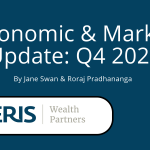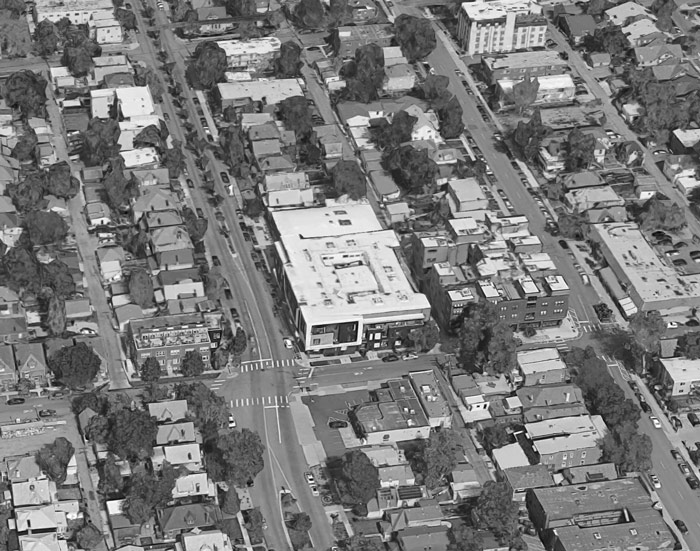There is a Strong Business Case for Racial Equity, But Investors Must Look Beyond the Data
By Stephanie Cohn Rupp
George Floyd was murdered by a white police officer on May 25th, 2020–just a few days before the anniversary of the Tulsa Massacre on June 1st. On that day in 1921 a white mob attacked, burned and bombed Tulsa’s Greenwood District; a thriving Black business area known as Black Wall Street. Hundreds of Black Tulsans were murdered and over thirty-five city blocks of homes and businesses were destroyed. Overnight, one of the most prosperous Black communities in the nation was reduced to ash and rubble.
In May of 2021 Viola Fletcher, a 107-year-old survivor of the Tulsa Massacre, testified before a Congressional House Judiciary Subcommittee about how this act of racially-driven violence and destruction has haunted her throughout her long life. “I have lived through the Massacre every day,” she said. “Our country may forget this history, but I cannot. I will not.”1 In the same testimony, Viola Fletcher also shared details of how racially-driven economic oppression has impacted her daily existence. “Most of my life I was a domestic worker serving white families,” she said. “I never made much money. To this day I can barely afford my everyday needs.”2
The congressional testimony of Viola Fletcher, and the confluence of these two horrific anniversaries, the death of George Floyd and the Tulsa Massacre, reminds us how much work we have left to do to dismantle systemic white supremacy in our society and our economy in the United States.
What can investors do to advance racial equity?
I recently participated in an investor dialogue hosted by RFK Human Rights focused on the question “One year after the tragic murder of George Floyd, how can leaders in finance move from talk to concrete actions in their hiring practices, compensation equality, asset allocation, and leadership diversity from a racial equality standpoint?”
I recommend watching the full conversation here, but I thought I would share a few reflections.
Sancia Dalley, Senior Vice President at RFK Human Rights, started off our conversation by citing statistics about the state of the racial wealth gap in this country:
- Research from the Federal Reserve Bank at St. Louis showed that between 1992 and 2016 college-educated white Americans saw their wealth increase by 96% while college-educated Black Americans saw their wealth fall by 10%.3
- The Brookings Institute found that the net worth of a typical white family in the United States is 10 times greater than the average net worth of a Black family.4
- Only 44% of Black households own their homes compared to 73.7% of white families.5
There is arguably greater awareness and more conversation about these statistics and about racial inequality in this country than ever before. But how much of this talk is being backed up by action?
After the death of George Floyd, there was an outpouring of commitments to racial justice from corporates and investors. At the RFK dialogue, panelist Olivia Knight, who is the Racial Justice Initiative Manager at As You Sow, shared that after Floyd’s murder her organization began keeping a racial justice scorecard to measure the actual progress made by S&P 500 companies on racial justice issues. As of March of 2021, As You Sow found that a significant portion of the S&P 500 scored zeros across all of their KPIs. They also found that only 36% of companies had actually given financial support to racial justice causes, much lower than the percentage that made public statements pledging that very support.6
This data indicates that too many public commitments to racial equity and racial justice amount to impact washing–it is more a marketing tactic than an authentic, action-backed commitment to change. To ensure authenticity we must look beyond public statements and seek action and accountability. We must look to see who is in leadership. Is racial equity evidenced in the C-suite or in the boardroom of these corporations? Is pay equity addressed at all levels of the firm? Unfortunately, not a lot has changed on that front.
We, as investors, must demand change and put our dollars into companies that are showing their commitment to building racial and gender equity and dismantling white supremacy. We can use shareholder advocacy to move companies toward action. We can invest in Community Development Finance Institutions (CDFIs) that drive capital and build wealth in Black communities by supporting Black-Owned businesses. According to a CDFI expert at Opportunity Finance Network, Amir Kirkwood, demand for financing of Black-owned businesses in the US outweighs supply of capital by five-fold. We can insist that justice, equity, diversity and inclusion are made a standard part of the due diligence process and that we not shy away from investing in CDFIs – not as philanthropy but as an intrinsic part of the investment portfolio. Our firm can attest that authentic EDI investing is achievable. As a manager of managers, Veris aims to select best in class managers across asset classes and sub-asset classes and we seek to weave justice, equity, diversity and inclusion throughout our due diligence process.
Going beyond the business case for racial equity.
We can offer plenty of data from economists showing that diverse teams outperform homogeneous teams – as diversity of thought yields better risk mitigation and more holistic problem solving. But we need to go beyond proving that diverse teams outperform the market to actually invest in this way. Cynics will always find counter-examples, or make the case that there is insufficient data, in private markets especially, or that we do not have enough business cycles to prove our case. I feel strongly that we should not need to make an economic argument because we do not need a business or economic argument to end human trafficking and slavery. This horrific system was and remains economically beneficial to the few who perpetrate it. So, when a financial professional or fiduciary in the industry asks for the economic benefit or business argument for EDI investing, I reply by asking in return “economic benefit for whom?”
In terms of macro-economic data, there is a huge opportunity cost of racial discrimination. Lack of investment in Black entrepreneurs and communities through business lending, consumer lending and mortgage finance means that the United States loses trillions of dollars of GDP. A 2020 study from Citigroup found that the U.S. economy lost $16T over the past 20 years because of discriminatory policies surrounding Black wages, education, housing and investments.7 That is a huge opportunity cost, not only for investors, but for the whole economy in this country.
If you’re an investor and you want to back the future of the United States, we believe you need to be growing economic wealth that touches all communities. Investing in all communities helps us avoid this growing wealth gap and wellness gap for the benefit of all of us. This universal approach to wealth creation also will have political ramifications and enable us to become a truer democracy – with power to “all people.” It requires taking a longer-term view as an investor.
All that being said, I believe we have to look beyond both short term and long-term data. There are certain decisions that need to be made simply because they are the right thing to do. We must invest in underrepresented and historically marginalized communities because we care about all of humanity. We should invest in all communities because we believe that, as the late social entrepreneur Leila Janah once said, “talent is distributed evenly, but opportunity is not.”
We cannot undo what was done to George Floyd, Viola Fletcher, the untold numbers of Black Tulsans whose lives and livelihoods were lost and destroyed in June of 1920. But we as investors can put our efforts and our capital towards building an equitable future in which safety, health, opportunity and wealth are equally distributed across all communities in America – without having to necessarily make a business case for doing so. This should be an intrinsic part of our mandate as impact investors, in how we invest and how we operate.
Sources
1https://www.washingtonpost.com/history/2021/05/19/viola-fletcher-tulsa-race-massacre-survivor/
4 https://www.brookings.edu/blog/up-front/2020/02/27/examining-the-black-white-wealth-gap/
6 https://www.asyousow.org/our-work/social-justice/racial-justice
7 https://www.citivelocity.com/citigps/closing-the-racial-inequality-gaps/
The foregoing reflects the opinions and views of the authors. All expressions of opinion reflect the judgment of the authors as of the date of publication. There is no guarantee that the views and opinions expressed herein will come to pass. Additionally, this document contains information derived from third party sources. Although we believe these third-party sources to be reliable, we make no representations as to the accuracy or completeness of any information derived from such third-party sources and take no responsibility therefore.







